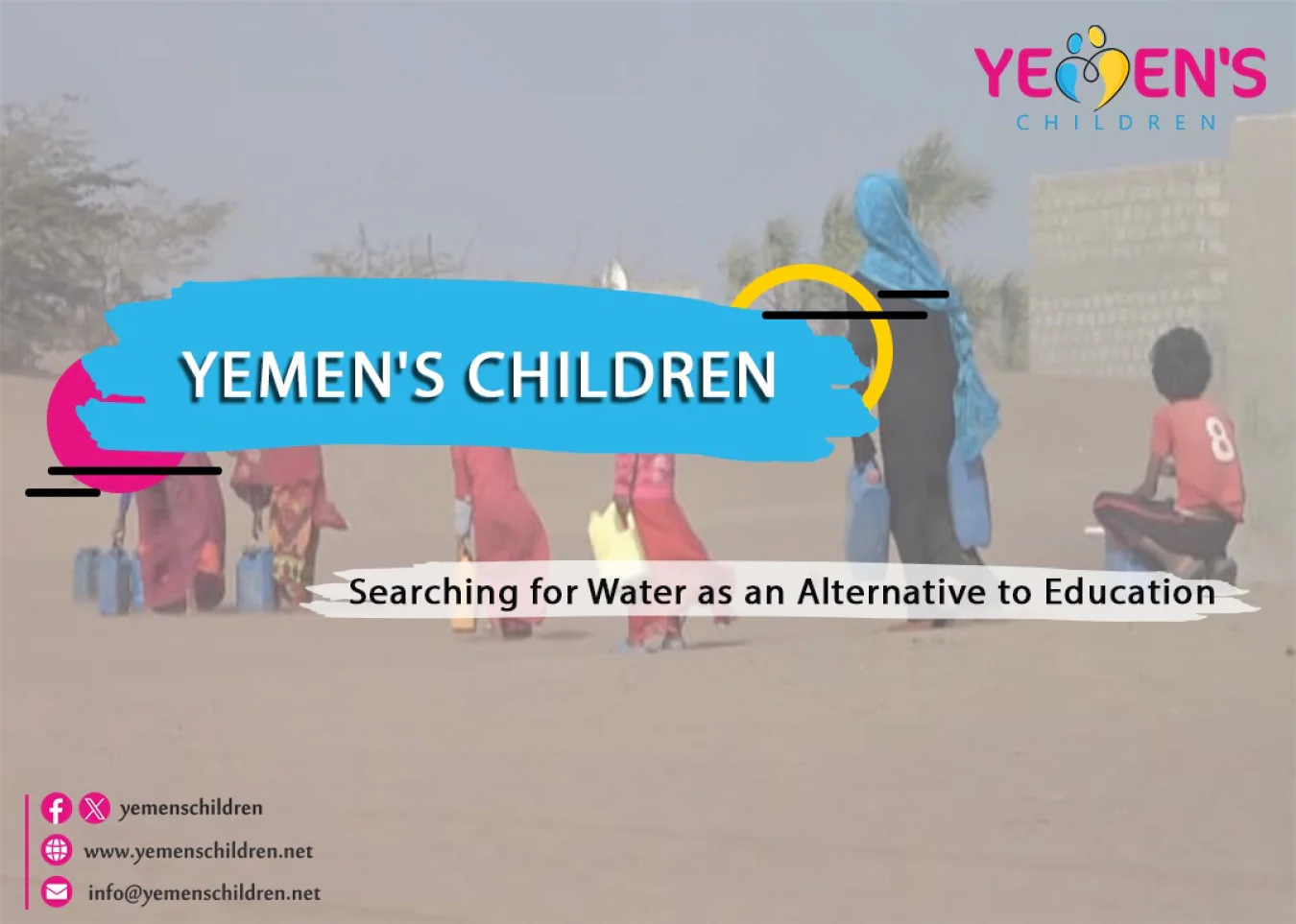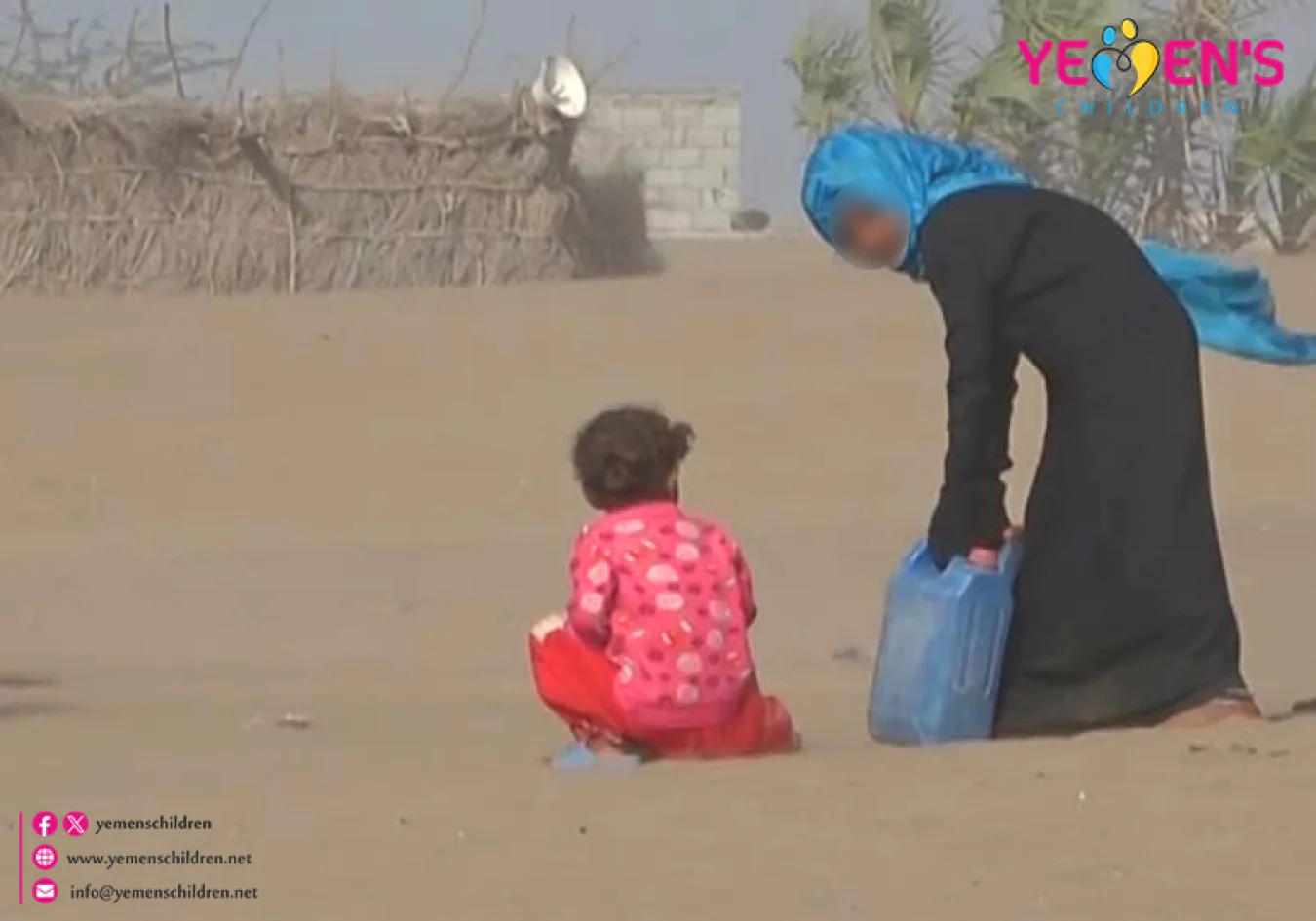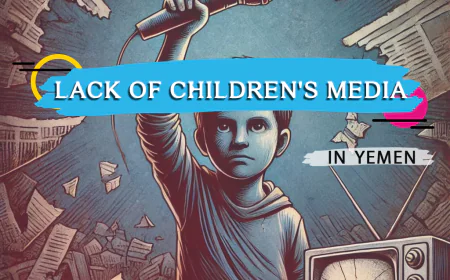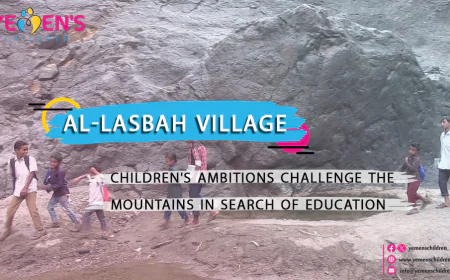"Yemen's Children: Searching for Water as an Alternative to Education"

Special Report - Samar Al-Ariqi
"While children everywhere wake up to go to school, I wake up in the morning and prepare to go in search of water," twelve-year-old Sarah expressed to the Yemen Children’s Platform, but in her Tihami accent.
Sarah recounts her suffering ,with pain on her face, and in the tremble of her voice her daily suffering that never cease ,as a strong longing drives her to live like the rest of the world's children, learning and acquiring new skills that will enable her to face the future when she grows up, according to her mother.
Sarah, a child from a Tuhami family in a village south of Hodeidah Governorate, western Yemen, says, “I wake up in the morning, and my mother is preparing water bears — containers filled with water — and I go on the back of a donkey to a well that is a long distance away from our house because there is no water well in our village.”
Sarah adds that when she arrives at the well, she finds many children and women from other villages close to their village, which forces her to take her place in the long line and under the scorching sun for which Hodeidah Governorate is known for its hot weather.
Sarah mentions that she feels severe pain in her right hand and in her body due to carrying water on the donkey’s back and transporting it almost daily, and sometimes she has to carry some of it with her hands so that she can transport the largest possible amount to fulfill her family’s needs.

When asked about her feelings while performing this difficult task, Sarah answered that she wishes this task would end and she could join school like the children of the world she sometimes sees on TV screens. She also has an ambition to become a different woman when she grows up. Sarah answered that she hopes to finish this task and to go to school like the children of the world who she sometimes sees on television, and that she has an ambition to be a different woman when she grows up.
As for Sarah’s father, he says that he looks at his children with regret as they live this cruel tragedy, but the circumstances of life forced them to do so, and that the war has burdened them, and they have neither a camel nor a camel as yemeni people usede to express about their tragedy , as he put it, adding: The war came and made matters worse, there is no electricity, no water, and high prices ,in addition to Aid arrives only to a limited extent.
He added: I go every morning to look for work in order to gather (a living for my wife and children), and my wife and children, including Sarah, go each to their mission so that we can live without to be forced to lose our dignity and so that our hands do not extend to anyone in light of the harsh war, indicating that he is not satisfied with this situation,But he cannot change it.
Sarah's father calls on charities and international organizations to look into their suffering in their village located south of Hays District in Hodeidah Governorate, and to make efforts to alleviate their suffering by providing water tank projects and delivering them to their homes, "the nests." He also calls for building schools and providing the possibilities for constant teaching so that his children and the children of all of Yemen can devote themselves to studying, And to create a future different from their situation, which he described as harsh and painful.
Not attending school
The results of a government survey carried out by the Yemeni Central Bureau of Statistics in cooperation with UNICEF throughout Yemen showed that half of the country’s children have not enrolled in school since the beginning of the war that broke out due to the Houthi coup against power in 2014, and that half of those enrolled are dropping out of basic and secondary education. .
The survey results stated that, as a result of the turmoil that disrupted education, only half of the children of school age were enrolled in the first grade of primary school, while the school completion rate in the basic stage was only 53%, and 37% in the secondary stage.
Data from the Multiple Indicator Cluster Survey also showed that only 6 out of 10 household members have drinking water available in sufficient quantities, and only 4 out of 10 household members have access to water sources within their buildings.
Today, Yemen is classified as one of the most countries affected by water scarcity, as more than half of the population suffers from the inability to access and secure drinking water.











